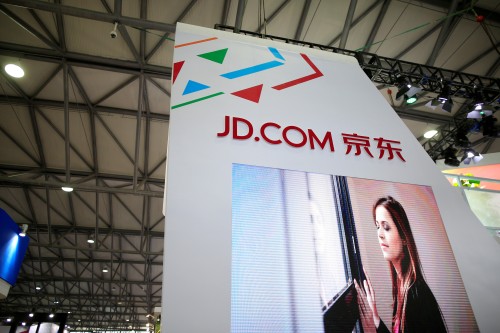By Deborah Mary Sophia and Casey Hall
(Reuters) -Chinese e-commerce group JD.com missed market estimates for quarterly revenue on Thursday, as a persistent slowdown in the world’s second-largest economy pressured consumers to keep a tight hold on their purse strings.
JD.com’s U.S.-listed shares fell nearly 4% in early trading after seesawing before the bell.
A prolonged property sector crisis, a macroeconomic slowdown and heightened job insecurity have hammered consumer confidence in China, hurting retail sales and resulting in a bruising price war among major e-commerce platforms.
JD.com has been working to improve its share of sales from high-growth livestreamed e-commerce, as well as exploring international business growth, but trails rivals such as Alibaba in livestreaming and Temu-owner PDD Holdings in tapping overseas sales.
While the Chinese government has outlined stimulus measures to prop up economic growth, the lack of solid steps to boost consumption has also weighed on sentiment.
“We are encouraged by the more supportive policy environment,” JD.com chief executive Sandy Xu said. “While we are seeing consumer sentiment starting to improve, it will take time for the effect of government policies to seep through.”
JD.com said total revenue rose 5.1% to 260.4 billion yuan ($35.95 billion) in the third quarter, compared with estimates of 261.45 billion yuan, according to LSEG data.
Net income attributable to JD.com’s ordinary shareholders stood at 11.7 billion yuan in the July-September period, an increase of 47.8% from a year earlier.
This period coincides with a traditional lull in Chinese consumption between major shopping festivals in June and November.
China’s Singles’ Day sales period, a nationwide sales promotion event typically seen as a gauge of consumer sentiment, ran from Oct. 14 to Nov. 11 this year, 10 days longer than last year. That resulted in a 26.6% rise in sales across all major e-commerce platforms, according to data provider Syntun.
This year’s sales saw larger ticket household appliances perform better than last year, benefiting from a national 150 billion yuan trade-in subsidy scheme announced in July to help boost consumption.
JD.com has been a major proponent of the initiative and since August has launched trade-in programmes for over 20 provinces and cities across China as part of the government’s initiative.
“I was really just expecting a very sluggish spending environment, but people are still prioritizing purchases in these durable goods and large ticket items,” M Science analyst Vinci Zhang said. “I think it surprised me to the upside by a little bit, but not too much.”
($1 = 7.2428 Chinese yuan renminbi)
(Reporting by Deborah Sophia in Bengaluru and Casey Hall in Shanghai; Editing by Shinjini Ganguli, Susan Fenton and Tomasz Janowski)


